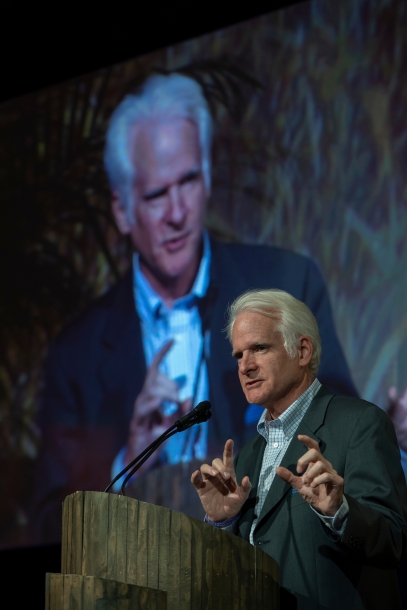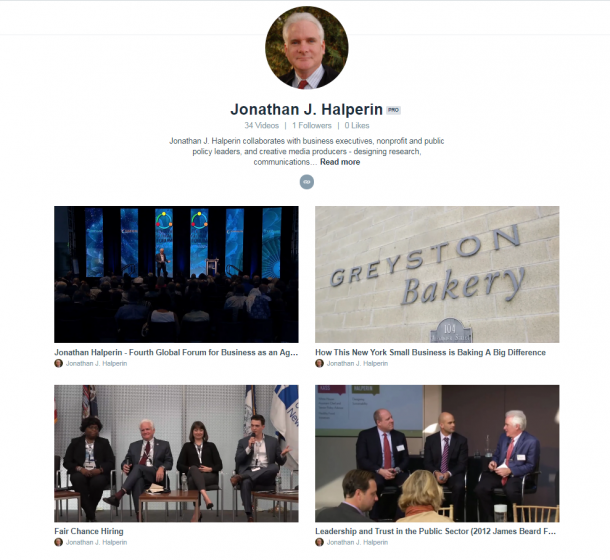Jonathan J. Halperin
Designing Our Future. Together.
You are here
Sustainability and Corporate Responsibility
The challenge is often posed as,”what is the business case for sustainability?” The deeper question asks what is the purpose of business if not to consistently generate value over time.
Thursday, November 8, 2012
As I prepare for meetings next week in London, and a presentation to Unilever, I wonder what I will be asked about the U.S. election – how to make sense of it. The explanations and interpretations are many.
Saturday, June 30, 2012
Responding to a comment from Joe Nocera about Howard Schultz’s unique background, both as the company founder and a kid from Brooklyn who grew up in public housing, I reframed the question back to the link between organizational and leadership values – and perceptions of time.
Friday, June 29, 2012
As I explained to C. Douglas McMillon, CEO and President of Walmart International.
Wednesday, April 25, 2012
Markets may well be the most finely tuned mechanism we have for allocating resources efficiently around short-term costs and prices. But absent a robust framework of social and cultural values and priorities to channel market operations these efficient markets will lead to vast inequity and depletion of critical resources.
Sunday, April 15, 2012
Jeremy Rifkin stole the show at this week’s CERES 2012 Conference,” Igniting Innovation, Scaling Sustainability.”
Saturday, February 18, 2012
There is so much to do to “repair the world.” But we had best be sure we are asking the right questions before we put too much faith and resources in the answers.
Wednesday, July 27, 2011
In my closing remarks at the Sustainable Food Laboratory Summit I explained that I did not think sustainability was a goal, a metric, or even an approach to doing business. Rather, it is a principle. And it has at its core a fundamental rethinking of space and time.
Sunday, July 17, 2011
It became clear in talking with farmers, ranchers, businesspeople, chefs and public advocates during the Sustainable Food Laboratory summit that there is a ‘goodness’ premium associated with these three linked terms. It was equally clear that few people have a clear sense of what these terms mean, beyond an evocation of being different and somehow better than conventional produce.
Saturday, July 16, 2011
At meeting after meeting, the conversation almost always turns to metrics and data. And while we need better data and better metrics - knowing of course that we do what we measure - we also need to remember for what reasons we are collecting data. Measurement alone is not the goal.
Friday, June 24, 2011
Hannah Jones, VP of Sustainable Business and Innovation at Nike, had the most memorable lines among dozens of speakers at two recent conferences, the “Ceres Conference 2011: Igniting Innovation, Scaling Sustainability” and The Conference Board’s “Corporate Citizenship and Sustainability” gathering in Washington, DC

